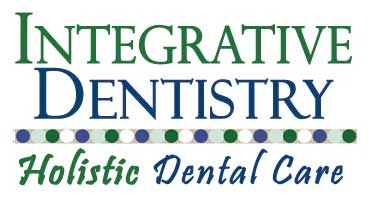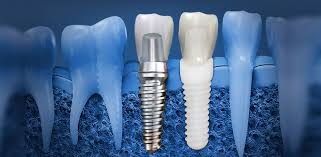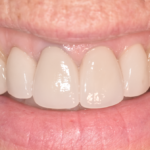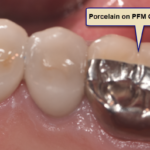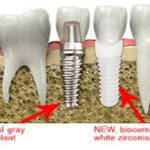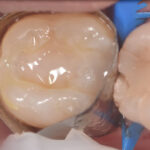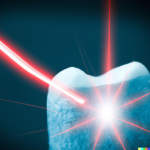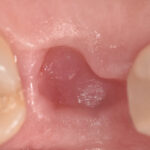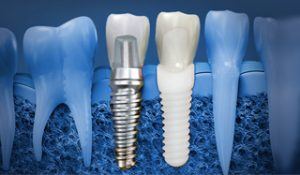 When I lecture on holistic dentistry, I’m often asked, ‘What are ceramic dental implants?’ As you can see in the picture to the right, ceramic implants are white and titanium implants are black and metallic looking. In the future I feel that ceramic implants are going to be the best choice when replacing a missing tooth. Below I will discuss the reasons why.
When I lecture on holistic dentistry, I’m often asked, ‘What are ceramic dental implants?’ As you can see in the picture to the right, ceramic implants are white and titanium implants are black and metallic looking. In the future I feel that ceramic implants are going to be the best choice when replacing a missing tooth. Below I will discuss the reasons why.
How Do Ceramic Implants Discourage Peri Implantitis
In my opinion, the often the best dental implant for health conscious people is the ceramic Zirconia implant made by Z Systems. I’ve listed the reasons below, and I will go through them point by point:
- No corrosion or oxidation
- Less plaque and bacteria adhesion
- Most biocompatible material in dentistry
- Superior natural esthetics
- It’s just like restoring a natural tooth
- Patients want them
I have noticed over the last few years, and heard at the implant conventions, that there are more and more titanium implant failures happening. When an implant starts to fail there is actually a word for it called peri implantitis. To understand what is happening here, ‘peri’ means the tissues ‘surrounding or around’ the implant. ‘Implantitis’ means diseased or infected implant. In the case of implants we are talking about the gums and the bone. It is really no different than with teeth. If the gums and bone start to fail, erode and get infected then the implant will fail. When we are talking about teeth this process is called gum disease or periodontitis. With gum disease the gums get red and bleed, and the teeth eventually get loose from bone loss.
Corrosion Causes Titanium Implant Failure
One of the causes of titanium implant failure is corrosion that also causes peri implantitis. There is some research available showing that the surface of titanium implants can actually oxidize or corrode. Usually this happens in an acidic environment. What creates acidity around implants is microbes and the inflammation that results from bacterial infection in the gums around them. Once the implant begins to corrode, deposits start to adhere or stick to the implant surface. Once this happens the inflammation and erosion of the gums and bone around the implant is a constant reality. This inflammation never goes away and you can be left with red and bleeding gums around implants that can eventually lead to you losing the implant just like you can lose a tooth from gum disease.
Bacteria and Plaque Around Implants
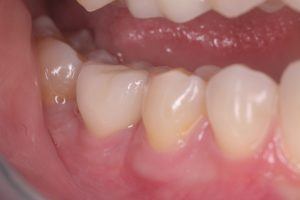
Look at the gum health along the teeth. As you can see the gums look pink and healthy. The implant crown is the second tooth from the left that looks a little lighter than the natural teeth.
One of the biggest advantages to zirconia (ceramic) implants over titanium/metal implants is that they don’t corrode or oxidize. This means that the surface always stays clean and doesn’t attract bacteria, plaque or hard deposits where bacteria can colonize. This is a huge difference between titanium and zirconia implants and will be a game changer for implant health in the future. You want your implants to be in place 10-20 years after they are placed, and if your implant suffers from peri implantitis at any point it should be considered a failure.
Because the surface of ceramic implants are polished, don’t corrode and are biocompatible they don’t attract bacteria or allow deposits to stick to them. You basically treat them like real teeth even during cleanings in the dental office. This is not true for titanium implants, because if you scratch or alter its surface, you are introducing more potential for deposits to adhere and cause failure down the road. You care and clean ceramic implants just like you would a regular tooth, but unlike a tooth they don’t get gum disease or peri implantitis. This results in gum and tissue health that cannot be matched by metalic implants. In my observation and in the studies that have been done, there is virtually no inflammation around zirconia implants and the gums look pink and healthy.
Biocompatibility of Zirconia Implants
Reasearch has also shown that Zirconia implants are extremely biofriendly to the body. This has been known for a long time and to now be able to offer zirconia implants is a huge benefit to those that are sensitive to metals in general. If you know you are sensitive or cannot tolerate wearing jewelry for instance, ceramic implants may be an option for you to replace missing teeth. The biocompatibility of zirconia is further supported to how the gums and soft tissue respond to it as stated above.
Superior Cosmetics and Natural Look of Zirconia Implants vs Titanium

You can clearly see the difference between Zirconia and titanium implants side by side.
One thing that makes Zirconia Implants more attractive over the long run is the fact that they are white and not a dull metallic material that can become a cosmetic issue down the road. This happens when the gums recede over time as they do with natural teeth. One thing you don’t want to happen is for the metallic implant to show through the gums or worse yet to be exposed if the gums aren’t covering them properly.
Restoring a Ceramic Implant is the same as Restoring a Tooth
When placing a crown over a Zirconia Implant the impression process, fabricating the crown and bonding the crown are just the same as with one of your own teeth. That’s because the components above the gums mimic a natural tooth.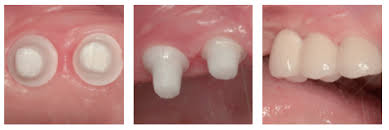
Patients Want Bio-Compatible Materials
In my practice I have noticed that my patients no longer want metal dental work, especially when it comes to implants. Ceramic implants are now a viable option that have stood the test of time. I have found that non-metal restorations and dental implants are preferable and are a better choice in most cases. Zirconia implants have been approved by the FDA and have been on the market for over 10 years, proving to be a reliable choice as they are both cosmetically superior and more bio-compatible.

Carey O’Rielly DDS has been a practicing dentist for 35 years. He went to USC Dental School and Duke University for his undergraduate degree. He grew up in Laguna Beach and now lives in La Costa with his wife Victoria, who runs his office.
He began his career by owning and operating a network of six offices in the San Francisco Bay Area. Presently he owns a private holistic practice in North County San Diego’s Encinitas.
Dr. O started looking for solutions to his health challenges that resulted from the stress and environmental toxicity that built up over a ten year period running his dental network. He has dedicated himself to learning about oral systemic problems and how dentistry can affect your health. He has applied what he has learned over the last twenty years to ensure he, his staff and his patients are protected from the chemicals and toxic materials found in most dental offices. He has produced an environmentally friendly office that is also peaceful and calm.
He is an expert on dental materials having looked at hundreds of biocompatibility lab tests over the years. He has identified the most bio-friendly materials to use in his practice and which dental materials can be used to replace metal fillings and crowns, including BPA free and fluoride free ‘white’ fillings. He also uses metal-free Zirconia or ceramic implants and PRF (platelet-rich fibrin) grafting materials which come from the patient’s own blood.
Dr. O’Rielly teaches C.E. courses on the systemic effects of gum disease. He is an expert in using phase contrast microscopy for analyzing dental infections, where he shows patients what kind of microbes, i.e. bacteria, amoeba, and yeasts like candida are populating the mouth and affecting the body as a whole.
He has an educational blog and is writing a book on dental health called ‘Hidden Dental Infections: Healing Root Canals and Infected Teeth with the Erbium Laser’ where he discusses dental nutrition, toxic dental materials and the effects of old root canals on inflammation and overall health.
